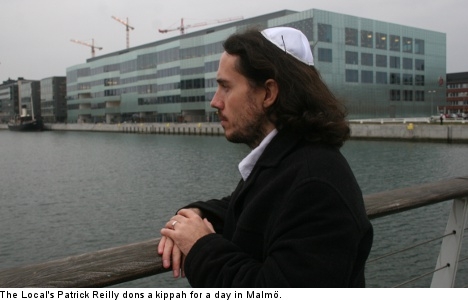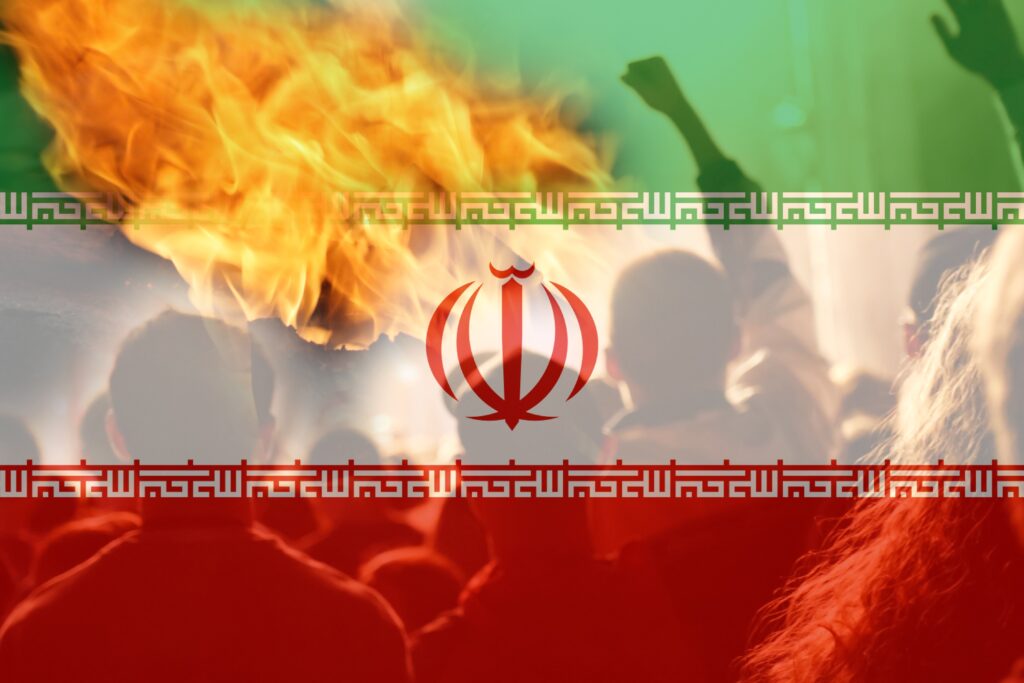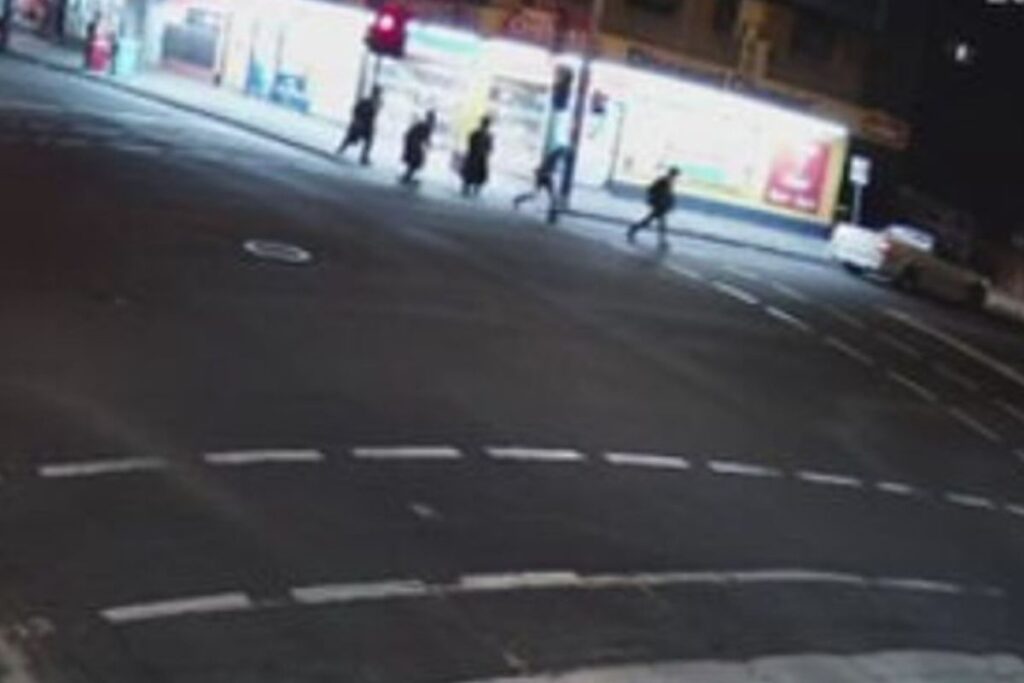UPDATES
Sweden: Surveying Antisemitic Attitudes
June 17, 2014 | Glen Falkenstein

The recent survey on worldwide antisemitism conducted by the Anti-Defamation League (ADL) labelled Sweden as one of the world’s least antisemitic countries and as the least antisemitic country in Europe, with just 4% or those surveyed classified as having “antisemitic attitudes”.
The survey involved presenting to respondents 11 traditional antisemitic stereotypes; if they responded that 6 or more were “probably true” they were classified as having “antisemitic attitudes”. The results and methodology of the survey have been the subject of considerable criticism. As the Jewish Times observed, one example of the survey’s limitations is that it found Sweden to be so low in “antisemitic attitudes”, despite widespread evidence that the situation for Jews is very difficult in places like the Swedish city of Malmo, with statistics showing the problem is worsening rather than improving.
Despite the findings of the survey, it is evident that a climate of antisemitism still exists within Sweden and assumes a variety of forms.
Swedish writer Annika Hernroth-Rothstein recently catalogued both the historical prevalence of antisemitism in Sweden and recent occurrences.
“In Sweden, antisemitism preceded the Jews by hundreds of years; once the first Jew settled here he was already familiar as the unclean, impure and ungodly murderer of Christ. The popular story concerning the Jews has remained unchanged… just weeks ago, in March, the words “Jewish swine” and “disgusting Jews” were spray-painted alongside swastikas on the walls of a Stockholm high school that holds special classes for Jewish students.”
“I know that the only way to survive as a Jew in my country is not to be seen as one. Not to be exposed but to shut up and fade into the woodwork. I’ve known this for quite some time.”
Hernroth-Rothstein has also suggested that legislative reforms and the larger climate are effectively making Jewish life in Sweden impossible in the long run:
“What frightens me most is that my government is proscribing Jewish life. Yes, by outlawing circumcision, banning kosher slaughter, and telling us forthrightly that the only way to avoid being harassed in the streets is to distance ourselves from Israel, they are reinventing the conditions of the Eastern Europe past that brought our community to this country in the first place. This is what is driving us out: one by one, bill by bill.”
Chairman of the Zionist Federation of Sweden Daniel Radomski describes Malmo as a town “globally infamous for anti-Semitism,” citing the former Mayor of Malmo “who stated publicly that his city’s Jews were themselves to blame for the rise of anti-Semitic attacks as they did not distance themselves clearly enough from Israel.”
There exists widespread antipathy towards Israel in Sweden. For instance, in 2009 fans expecting to see a tennis match in Malmo between a Swedish and Israeli player were informed that for security reasons they could not attend the match, which would only be open to some journalists and officials. The authorities explained that the ban was implemented due to fear of violent anti-Israel protests at the match. Despite the ban dozens of protestors clashed with police at the match and threw rocks in an attempt to storm the arena.
As outlined by the American Jewish Committee, in numerous attacks on Israel’s legitimacy, “anti-Zionism became a euphemism, a disguise for anti-Semitism,” while more historical notions of antisemitism remain prevalent in vitriol towards Europe’s Jewish communities.
“Attacks against Jewish institutions are one of the most common forms of contemporary anti-Semitism. Some of these attacks are vandalism against Jewish property, while others are deadly.”
Radomski goes on to explain the links between anti-Zionism and antisemitism in Sweden:
“Here [Sweden] many immigrants have backgrounds which are directly linked to the Israeli-Arab conflict and hail from countries where classic anti-Semitism is commonly accepted, encouraged by politicians and even taught in schools… it is acceptable and encouraged to support calls for Israel’s destruction, deliberately ignoring the effect such support has as a vehicle for the rise in Swedish anti-Semitism.”
Rabbi Abraham Cooper, Associate Dean of the Simon Wiesenthal Center, criticised the survey results, noting the Malmo has been on the Center’s “do not travel” list for the past few years, as well as identifying a number of worrying trends:
“You’re talking about countries in which shechita (kosher slaughter) is illegal, in which there are Holocaust deniers and generally very negative attitudes [about Jews]… Jewish kids in schools in Scandinavia are bullied because they’re Jews. So the idea that Sweden is somehow that shining beacon in Scandinavia, it’s just way off.”
In 2010 a Hollywood company cancelled plans to shoot a film with a Jewish theme in the Swedish city of Skane, following reports of escalating attacks directed at Malmo’s Jews, ultimately deciding they could not commence production due to safety concerns. Only last year a reporter encountered much attention and hostility after donning a kippah and walking around Malmo for a day.
“After a while I began to forget I was wearing the kippah until a burly man walked aggressively in my direction and mouthed ‘fucking Jew’ to his friend. It was a reminder that making your Jewish identity in Malmö obvious carries its own risk. Frankly, it was a relief to take it off.”
Others have also argued that the bans on kosher slaughter and ritual circumcision have indicated a rise in antisemitic attitudes within Scandinavia.
Jewish Community security expert Mark Gardner, writing for The International Business Times noted growing pressure and distress for Jewish communities in European countries including Sweden, citing a “disconnect between Jews and much of the rest of society.”
Gardner notes that the hatred comes from “various political and religious sources, including Christian, Muslim, far right, far left, nationalist and Islamist” movements, which while expressing anti-Israel rhetoric, also employ classic antisemitic stereotypes alleging “secret control of governments, the media and global finance.”
It appears that the survey did not account for the entirety of antisemitic attitudes and stereotypes evident within a country like Sweden or the reality of its effects on the local Jewish community. Conversely, it has been suggested that perhaps countries like China and South Korea received inordinately high “antisemitic attitude” scores in the ADL survey because participants there did not view the idea of Jews having disproportionate influence in the business and finance world as negative stereotypes, but rather as admirable traits.
While the survey is not without value in that it highlights the surprising extent of the belief in antisemitic stereotypes, it certainly does not encompass all the realities of antisemitism as an international phenomenon. This is one piece of the puzzle of global antisemitism, but as the case of Sweden indicates, it is only one, and there is a great deal more to be done to both identify the problem and increase efforts to counter it.
– Glen Falkenstein
Tags: Antisemitism





